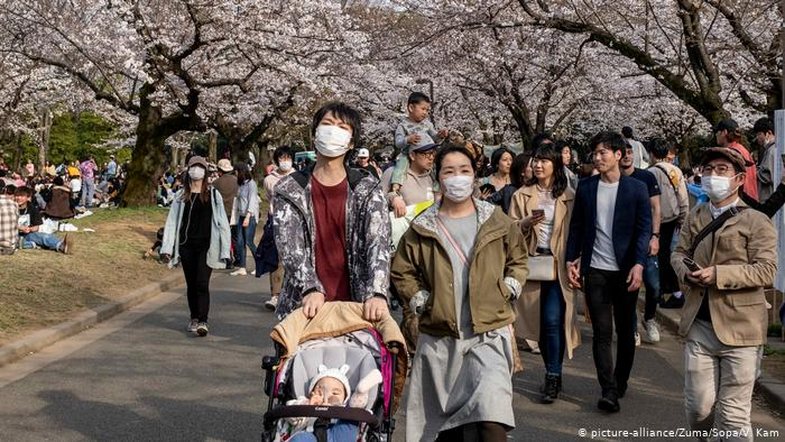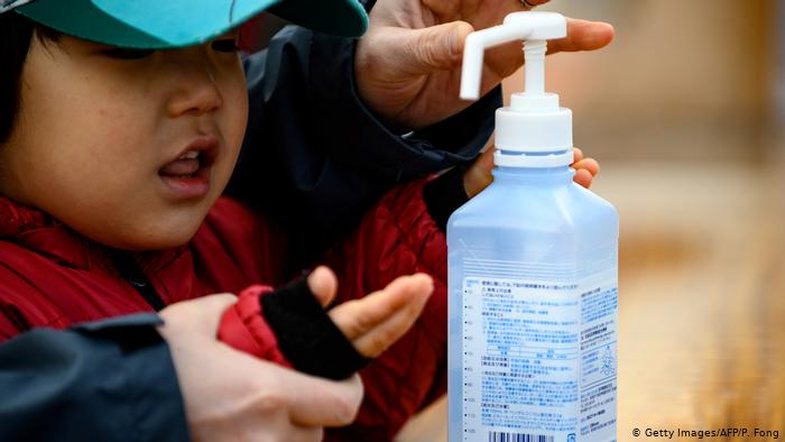
The coronavirus did not bother the Japanese who were enjoying the cherry blossoms last weekend. Thousands of people sat in the parks, ate their lunches, drank beers and took photos of the newly opened buds.
"Hanami, the flower festival, is the highlight of the year for us," said a Ueno Park employee in Tokyo.
The contrast with Europe could not have been stronger. Japan has had ten outbreaks so far, about 1,200 confirmed cases and 43 coronavirus deaths. Every day 10-12 new cases are reported. These numbers should have been many times higher. After all, Japan is very populated, has the highest density of seniors in the world, and is very close to China, where the virus originated from; in January, nearly a million Chinese traveled to Japan, and in February, nearly 90,000.
The Japanese government responded to the pandemic by shutting down all schools for two weeks before spring holidays in late March and canceling all public events. Shops and restaurants remained open and some employees decided to work from home.
Low numbers of those affected with Covid-19 raised doubts whether the government was hiding the truth. Although it has the capacity to perform six thousand tests a day, Japan has tested only 14,000 people to date - 20 times less than neighboring South Korea that has been hit hard by the pandemic. Only patients with severe symptoms are tested, said Masahiro Kami, a virologist at the Medical Governance Research Institute. This means, according to him, that the number of unaccounted for cases is very high.
Experts at the Japanese Ministry of Health said they expect explosions to get the situation under control. This strategy works better than performing non-criterion tests. Also, poor testing makes it easy for hospitals to be easily accessible by those who really need it and not by anyone who is in doubt.
Also, the ethos of greetings in Japan - a bowing instead of kissing or giving a hand - played an important role in slowing the pandemic.

"Handwashing, disinfectant mouthwash and wearing masks are part of our daily lives. We don't need the coronavirus to learn these things, ?said one Japanese mother. As a result, the Japanese have found it easier to adapt to the new rules of hygiene in pandemic conditions that do not, in fact, change much from normal. Shops and businesses provided antibacterial gel at the entrance and citizens were forced to wear masks.
All over Japan, about 5.5 billion masks are sold each year - 43 per person. Sales of masks peaked when the pandemic began. Today, they are rationed and people wait patiently in line to receive theirs. Other stores square fabric and coffee filters, along with instructions for making a mask at home.
The Japanese have realized that you can be infected without any symptoms; put on masks to protect others.
In view of the success, the government was restrained from declaring a state of emergency. The Japanese have slowly returned to life. Some children have returned to school and are sitting apart in ventilated rooms. The parks are open, but those with a fever are advised to stay home.
Frightened by a second wave of infections, only schools in Covid-19-free areas were allowed to open at the beginning of the semester, in April. Public events are still banned.
Foreign visitors pose a danger to the health of the Japanese. Citizens of Europe and South Korea are not allowed to enter Japan. Foreigners living there may return, but must be quarantined for 14 days.
Source: Deutsche Welle







